19 ways to fall asleep fast
Struggling to sleep? Making some easy changes to your bedtime habits can help you to fall asleep fast at night, and wake up feeling rested.
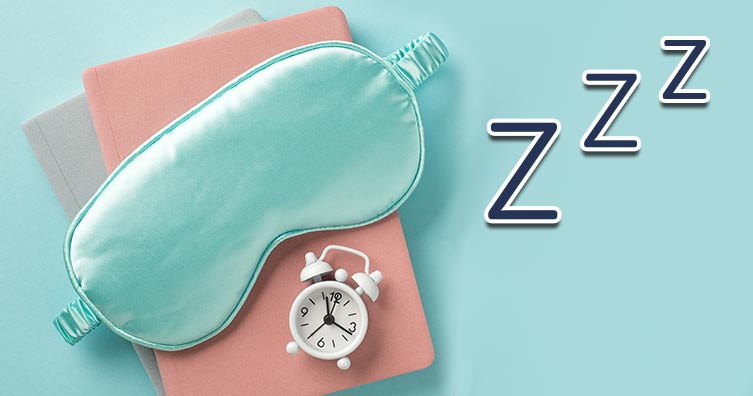
Credit: Inspiration GP – Shutterstock
We all know how horrible it is to spend the night tossing and turning. It's worse, still, trying to get through a busy day after a bad night's sleep.
According to the NHS, adults typically need between seven and nine hours of sleep a night. If you're not sleeping enough, it can impact your productivity, mood and general well-being.
If you're wondering how to fall asleep fast, a key place to start is sleep hygiene (i.e. your sleeping habits). To improve your sleep, start by changing how you prepare for bed each evening with our tips.
Sleep hygiene tips to help you fall asleep
Try these tips to fall asleep more quickly:
-
Create a bedtime routine
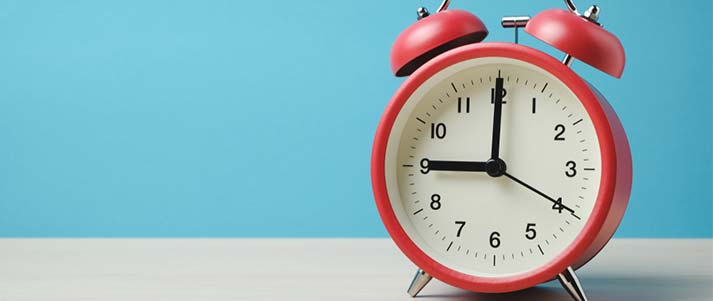
Credit: samritk – Shutterstock
Having a regular bedtime (and morning) routine is essential.
To sleep better, go to bed at the same time each night and wake up at a similar time each day.
Think about when you usually need to wake up. If it's around 7am, go to bed between 10pm and 11pm so you can get a solid night's sleep before your alarm goes off in the morning.
Shifting your sleeping pattern will take some getting used to. For example, if you usually go to sleep at 2am, moving it forward by a few hours might be difficult at first. But, when you set a sleep routine, do your best to stick to it.
Resist the urge to sleep in and keep going to bed at the same time, even if it initially makes it harder to sleep. Once you've adjusted to the new routine, you should be able to fall asleep quickly each night and wake up feeling refreshed.
-
Avoid screens before bed
It's all too easy to spend the evening scrolling through social media or swiping on dating apps, but this is not good sleep hygiene.
Whether it's your phone, laptop or TV, if you're looking at a screen all night, it will make it harder for you to get to sleep quickly. Aim to spend an hour or so before bed away from screens.
Instead, consider reading a book. It's a great way to switch off and unwind. You'll often notice your eyes will get heavy from reading, so you should soon drift off to sleep.
Listening to calming music is another good option. You could make a playlist with your favourite chilled songs and put them on as you get ready for bed.
If you really struggle to stay off your phone, try the Hold app. It lets you earn points for not using your phone. And, once you've earned enough points, you can redeem them for freebies.
-
Use sleep apps
Although you generally want to avoid screens at night, there are some apps that can help you get to sleep.
Unfortunately, the top ones tend to charge a monthly subscription.
But, Sleep Cycle (one of the best sleep apps) has a free version. The app will wake you up when you're in your lightest sleep phase, improving your chances of feeling rested in the morning. We explain more in our guide to the top apps for students.
Check if your phone has any built-in features that discourage you from using your phone at night. You might find you're able to block apps on your phone after a certain time.
Also, if you have an Apple Watch (or similar) try the pre-installed apps designed to track your health and sleep. These can be good ways to learn more about your sleep cycle.
-
Have a bath before bed
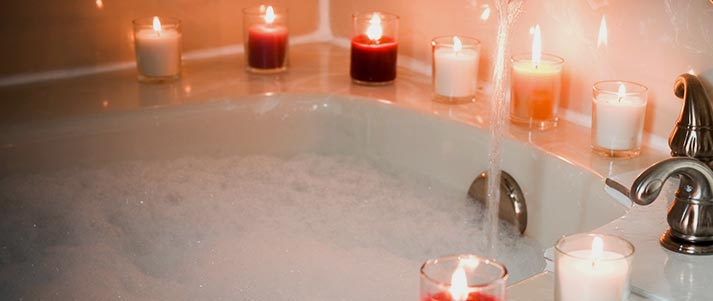
Credit: Brian Goodman – Shutterstock
A hot bath is, of course, a great way to unwind. Not only will it calm your mind, but it will also relax your muscles.
However, the benefits of having a bath before bed go beyond this.
The way in which bodies heat up during a bath and cool down afterwards can lead the pineal gland to produce melatonin. This is a sleep hormone, which should make it easier to fall asleep quickly when you go to bed.
Showers can also help but are thought to be slightly less effective than baths at improving sleep. If you're searching for easy ways to fall asleep fast, it's worth giving this a try!
-
Try not to work too late
It's best not to work or study too late without giving yourself time to fully switch off before bed.
After finishing work, your mind will be busy with thoughts about what you've done that day, and what needs to be completed. You might find that your body is physically tense from adrenaline or stress, making it harder for you to drift off to sleep.
Aim to finish work at least two hours before bed (but ideally more) to give yourself time for self-care.
On nights before an essay is due, you might find it hard to get everything done with time to spare in the evening. But this is why it's essential to plan ahead.
When possible, aim to finish your work with plenty of time to spare before the deadline. It will save you a sleepless night and should lead to higher-quality work as there will be less need to rush.
-
Don't eat big meals late at night
Try not to eat a huge dinner close to bedtime.
It goes without saying that you shouldn't go to bed feeling hungry. However, it's important to time your dinner carefully so your body has time to digest the food before you go to sleep.
As a guideline, eating around three hours before bed should help you go to sleep feeling comfortable.
-
Sleep in a dark room
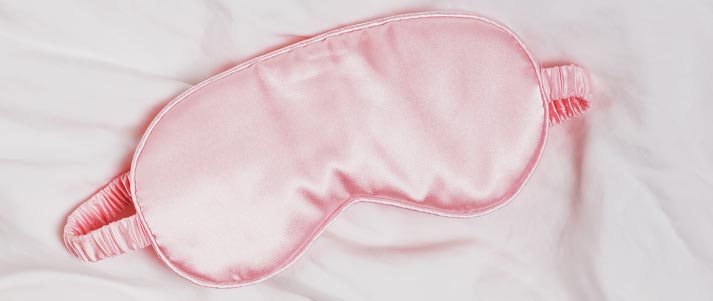
Credit: Chiociolla – Shutterstock
If your bedroom doesn't get fully dark, this might be affecting your ability to sleep.
One solution is to install blackout curtains or blinds in your room.
If you're renting, look into buying stick-on blinds. You can usually find them in places like IKEA or Amazon, and they should darken your room without causing any damage to the property. This happens to be one of the top ways to decorate your room on a budget.
You might also want to consider buying an eye mask. They're not for everyone, but if you're struggling to fall asleep because your room's too light, they could help.
-
Consider what noise level you need to sleep
Another thing that can make it hard to sleep is the noise level in the room. Everyone has different preferences for how quiet they like the room to be.
Some need complete silence to sleep. If this is you, it may be worth buying some earplugs. This should help if you live by a busy road, or if you're easily woken by your flatmates moving about late at night or early in the morning.
Others need a little background noise to fall asleep. Trying something like sound machine apps or a long track of white noise on a music streaming app could help you sleep better. You might also find a ticking clock or a blowing fan useful.
-
Keep your bedroom at a comfortable temperature
Throughout the year, there's always the challenge of getting your room to a comfortable temperature to help you fall asleep fast. There are things you can try each summer and winter to keep the room cool or warm enough.
When there's a heatwave, sleeping in a warm room is tough. We go through some tips in our guide to keeping cool in the heat. These include soaking towels or sheets in cold water before bed and not sleeping naked (counter-intuitive, we know, but we explain the reasoning in the guide).
In winter, it can be hard to stay warm. When faced with soaring energy bills, it's not always as simple as using radiators. But there are some cheaper ways to keep warm in bed, like using an electric blanket, wearing extra layers and having a blanket as well as a duvet.
-
Get into a healthy exercise routine
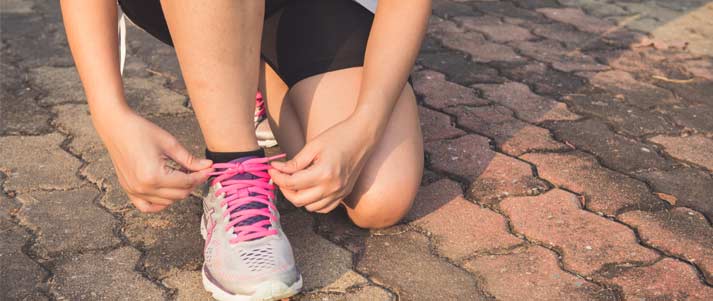
It's widely recognised that regular exercise is great for your physical and mental health, and can improve the quality of your sleep.
You don't need to splash out on an expensive gym membership. There are loads of free ways to get fit, such as running in the park and doing YouTube tutorials.
Yoga, for instance, can be done from the comfort of your own home and is great for your mind and body. We recommend trying the tutorials on the Yoga with Adriene YouTube channel. The 30-day challenges will help you get into a daily routine of doing yoga.
If you'd prefer to go to the gym, we have some tips on getting a cheaper membership.
However, it's worth noting that if you work out too soon before bed, it can actually make your sleep worse. Try to leave at least a few hours between your workout and bedtime.
-
Don't work or watch TV in bed
As much as possible, try to avoid working or watching TV in bed.
If you spend all evening there, you'll miss out on the experience of going to bed at night. You'll just be staying where you have already spent the last few hours which will make it harder to fall asleep.
In particular, you don't want to associate your bed with work.
Rather than working or studying in bed, a good option is to go to the library. This gets you out of the house and means that, when you come home, you can use your living space solely as a place to relax.
Some people prefer to work from home, in which case having a desk will make a big difference.
If space allows, it's better to work from a desk in a different room than your bedroom. This lets you keep your working space and sleeping space completely separate.
-
Avoid taking long naps during the day
Naps might be tempting, but they can make it more difficult for you to fall asleep (and stay asleep) at night. As much as possible, resist the temptation to take long naps during the day.
It largely comes down to the sleep routine that we mentioned in the first point.
You'll generally sleep better if you're used to going to bed and waking up at around the same time each day. As long as you're getting enough sleep during the night, you should be able to stay awake and alert throughout most of the day.
-
Start journalling
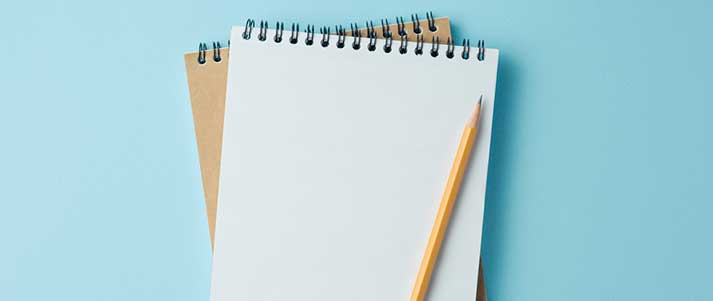
Credit: Alexxndr – Shutterstock
Do you find it difficult to switch off when you get into bed? Journalling might help.
Writing down your thoughts and worries in a diary is a good way to work through what's on your mind. It's one of our favourite self-care ideas.
There are a few different ways to approach journaling.
One option is to keep a gratitude journal. This is where you write down things that you're grateful for and proud of. For example, it could be a handful of highlights from throughout the day.
Alternatively, if you stay up late thinking about what you need to do the next day, you might find it useful to write a to-do list before bed.
Hopefully, this should help you feel calm and make it easier to fall asleep.
-
Meditate
Meditation is another good way to relax at night. If you've not tried it before, it's easy to get started.
There are some apps for guided meditation, but you often need to pay a subscription to use all of the features. In the past, Headspace has been available for free with a Spotify Premium subscription. Although it's no longer free, students get 85% off!
Otherwise, you could look on YouTube for free guided meditation videos. There's also a video for beditation (meditation specifically aimed at helping you sleep) on the NHS website.
-
Don't force yourself to stay in bed if you're not sleeping
If you're struggling to sleep at night, sometimes it's best to get up and do something for a little while before going back to bed.
Resist the urge to pick up your phone and scroll through social media. As we mentioned earlier, looking at screens can make it harder to fall asleep.
Instead, you could maybe make a cup of decaf tea or read a book.
Having said that, if you're lying awake in bed but you're enjoying the rest, it's fine to stay where you are. Go with your instinct on what you think would help you the most.
-
Regularly refresh your bedding
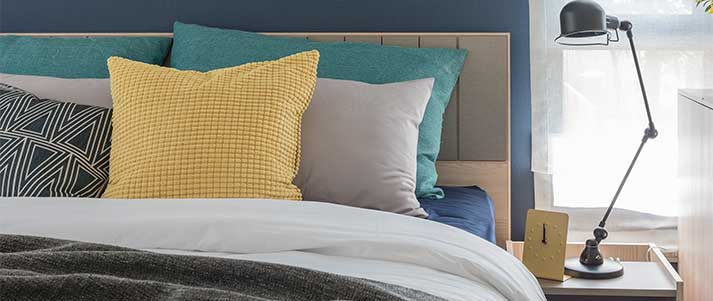
Credit: All About Space – Shutterstock
It's always a lovely feeling to get into bed when there's nice, fresh bedding.
You should aim to wash your bed sheets every couple of weeks, or even every week if possible.
To make it easier for you to fall asleep, your bed should be as comfortable as possible. A big part of that is having clean bedding.
-
Cut down on caffeine
It goes without saying that caffeine keeps you awake. But at what point in the day should you stop drinking coffee?
Advice on this can vary, but around 10 hours before bed is a good amount of time. So, if your bedtime is around 11pm, try not to drink caffeinated tea and coffee from 1pm onwards. You should also avoid energy drinks and soft drinks like cola for the rest of the day.
This should make it easier for you to fall asleep soon after your head hits the pillow.
-
Drink less alcohol
To sleep better, try drinking less alcohol – especially close to bedtime.
Drinkaware has useful info on the impact of alcohol on sleep. They highlight that, even if you do fall asleep after drinking, alcohol can make the quality of your sleep worse.
It has the potential to interfere with your sleep cycle and prevent you from feeling rested in the morning. On top of this, you might find you need to wake up during the night to go to the toilet.
And that's even before you think about the fact you could wake up hungover, as well as tired.
During a night out, don't feel like you have to drink alcohol all night. If you are drinking, it's worth alternating alcoholic drinks with water to reduce the risk of getting dehydrated.
There are also loads of great alcohol-free drinks to choose from. For ideas, see our guide to the best non-alcoholic drinks.
-
Quit smoking
As nicotine is a stimulant, it can make it harder for you to fall asleep if you smoke too close to bedtime.
Among the many physical and mental health benefits, it can improve your sleep quality if you give up cigarettes.
For tips on how to do so, see our guide to quitting smoking and saving money.
Now you've read these tips on ways to fall asleep fast, find out how to make money in your sleep.








